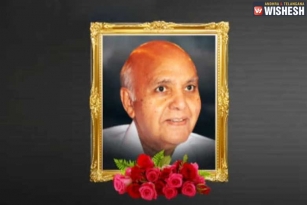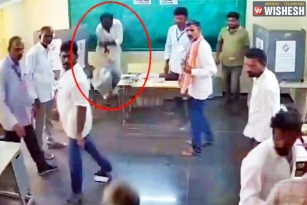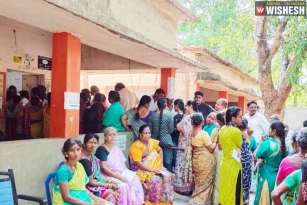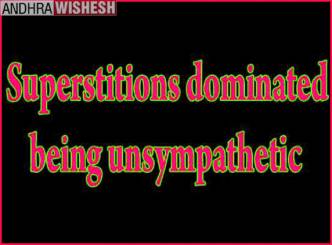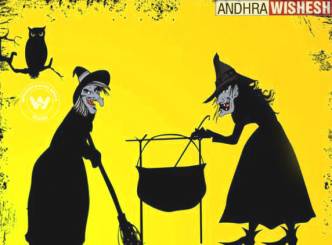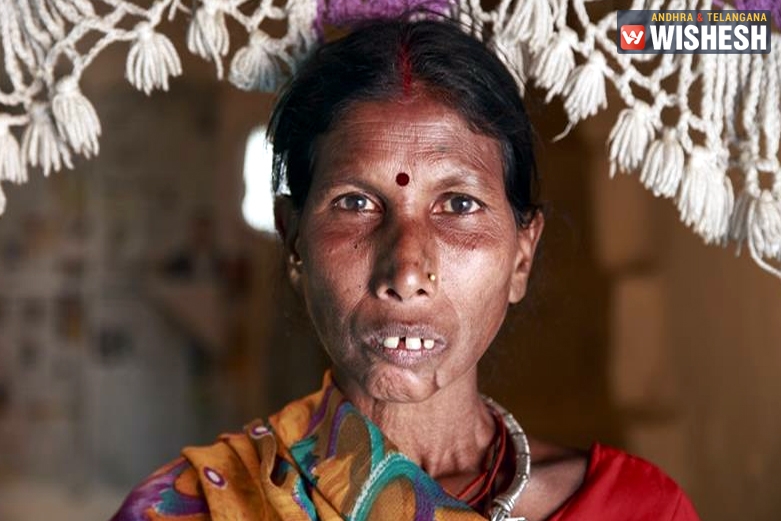
Even in the present generation, where the technology is growing, few human beliefs are still being consistent in the remote parts of India, where the women branded witches are being abused, tortured and murdered.
Bahura Bai- I feel untouchable in my family

A 40 year old Bahura Bai is hunted as a witch in Chattisgarh, for the various activities of her to the people around.
Bahura Bai was considered so, when she had affectionately caressed in the marketplace fell sick. Then, a year later, her brother-in-law developed an ailment. This made the some local shamans and village leaders to treat Bai as a Witch. Many threats and abuses have started from her family and the community.
"It got worse in November last year, when my brother-in-law and other relatives attempted to choke me," she explains from inside her mud and brick home. "They want to kill me. They believe I'm a sorcerer. In prayers, I ask my goddess every morning, 'am I really?'''
"If my sister-in-law had her way she would love to burn me alive. My nephew wants to cut me into small pieces. Only my husband supports me," she continues, before urging me to leave in case my presence angers the villagers and inspires reprisals.
"The village heads don't want the police or media meddling. They say it's an internal affair of the village," she explains.
Drooping branches and bags of rice “In fact, the family members of Bai, beat her to death in the Bemetara district of Chhattisgarh for practicing 'black magic'. She was pulled by her hair, dragged naked through the streets and had chili powder sprinkled onto her face and genitals until she died,” the locals say.
"If my sister-in-law had her way she would love to burn me alive. My nephew wants to cut me into small pieces. Only my husband supports me,” Bai said Particularly in Chattisgarh, there were 1,500 witch trials and 210 associated murders between 2001 and 2013.
If the latest official figures from the Indian government are also accounted, then the count would be 2100 people, where the most of them are women were killed across the country after being accused of practicing witchcraft. But the officials said that the number might be high as most of them refuse to lodge an official complaint and there are many unreported deaths.
In remote parts of the country, these courts and village heads are often left alone to ignore the state's Witchcraft Atrocities (Prevention) Act 2005, which criminalizes the persecution of women over allegations of witchcraft.
In Jharkhand, officials say at least 414 people were murdered between 2001 and 2013 after being accused of being witches or sorcerers.
Intellectuals opinions:
Sita Devi, who heads a small coalition of women who have been accused of witchcraft in Mandir Hasaud says that, "Interestingly, only women are blamed for witchery,"
"This discrimination starts at birth. For example, when a baby boy is born the villagers celebrate by bursting three crackers. And when a girl is born only two crackers are fired," she adds.
"There is a lot of caste consciousness and illiteracy in these villages and an ojha [a witch doctor or shaman] takes benefit of it by targeting these underprivileged women. Getting a woman killed has become a business for the fake god men and witch doctors."
Male villagers are reluctant to talk to outsiders about it, but one tells me: "Women can turn into witches to avenge someone who has done them bad in the past."
"I have seen a woman turning to a witch and flying faster than a car. Even a powerful man will shiver before such an ugly woman. The ojhas are our last resort as the educated people don't listen to us."
"They [the witches] eat human flesh and drink human blood. That's what our elders have seen," he explains.
In 1995, Dr Dinesh Mishra, an ophthalmologist, saw a woman beaten to death and her body dragged through the streets by an angry mob, he decided to fight this oppression.
"Local belief … is that a woman can curse someone by making them sick or making them lose financially by destroying their crops. They are even held responsible for a natural calamity. This thinking creates hatred against the women and hence this crime.", a social activist says.
According to him, a lack of medical knowledge leads people to place their trust in the self-styled shamans who trick them in order to make money.
"The problem is widespread all over Chhattisgarh," he says. "I am aware of more than 1,200 cases of witch hunting and I believe the numbers are just 10 percent [of the real total] as most of … the women are afraid to launch reports or complaints or they are sure that their voices will never be heard."
"I also show magic tricks, which the witch doctors use to get the attention of the gullible villagers. I do all this to raise awareness and to tell villagers that witch doctors are tricking you. But their ancestral belief is so strong and any change in attitude will take time to happen."
Teerath Sahu – 'The truth inside me keeps me alive. But I shiver whenever I see those men roaming the village'

14 years ago, the 58 years old, Teerath Sahu reminds about the similar incident
"That day someone knocked on my door. When I came out to see what was happening, my world changed completely."
She starts to cry as she recounts what happened next.
Teerath was asked to attend a gathering of villagers. Unbeknown to her, the villagers were consulting a witch doctor, who had identified her and two other women, Bisahin Bai and Shyama Bai, as witches.
"He had been drinking and smoking weed all along and the villagers believed his argument over our sobs and pleads," she says. "Before we could understand what was going on or plead our cases, the villagers pounced on us."
The three were beaten with bamboo sticks and iron rods, paraded naked around the village, tonsured and forced to drink urine. All of their jewellery was taken from them.
The beatings continued until all three women fainted.
"In the evening, they finally left us to die outside a Goddess Durga temple," Teerath remembers. "Our families mustered courage and brought us back to our homes. But, by then, we had lost everything, especially our honour."
Their story became headline news and a case was lodged against 20 of those involved. But two have since died and others are out on bail.
"We still shiver when we see those men roaming the village," she says.
Teerath says she and the other two victims never got justice, but their story did force the state to adopt an act banning witch hunts.
"The truth inside me is what keeps me living. And if the government and the world know the truth, why have the culprits been roaming free for the last 10 years or so?"
Gajra Bai – ‘I was mentally tortured and my image was tarnished’

Gajra Bai, a 47 year old woman, remembers the night, she was woken by cries from a neighbor's home.
"I went to Virsa Bai's home to find her daughter lying on a bed," she recalls. "She had fallen sick and the medical help wasn't available."
The next day, villagers came to Gajra's house and accused her of witchcraft.
"They abused me in front of neighbors and called me a witch and blamed me for performing witchcraft on the girl. I kept pleading my innocence but it fell on deaf ears; they were not ready to listen."
Fortunate thing is, as Gajra’s family supported her, she decided to complaint to the police.
"I was mentally tortured and my image was getting tarnished so I had to take action," she says. "Thank God my family was supportive."
"In July 2010, police detained several villagers and charged them under the Witchcraft Prevention Act."
But, as in so many of these cases, they were later released on bail.
Jaam Bai – 'Here a woman has only to listen and not to act'

10 years ago, when the son of a neighbor fell sick, Jaam Bhai took a forward step, which later turned her as a curse.
"The five-year-old boy was introduced to an ojha [witch doctor] who suggested that a woman in the neighbourhood had cast evil magic on him," she explains.
"Since I live next door, the family blamed me."
As the efforts of the Bai failed, the boy was taken to the hospital. Buty the doctor revealed that he was dead on the way itself (brought dead). The doctor informed that he is in the last stages of Jaundice
When the news was out, along with villagers Jaam went to offer her condolences to his family. But, she says, they "hurled abuse at me and branded me a witch who needed to be eliminated from the village".
Sensing danger, she left her neighbor's home.
When other villagers again assembled at the deceased boy's home, Jaam believed it was an opportunity to try to repair relations. She went again to pay her respects.
"But the moment I stepped inside their house, they locked the door and started beating me up," she says.
"They kept calling me a witch. They tore my clothes until my husband came and saved me."
Afraid that they would kill her, Jaam wanted to seek police help. But her husband refused to let her, saying that it would "bring more shame to the family".
So the threats and intimidation continued.
Then some rights activists working in the region heard her story and sought government action on Jaam's behalf. The police detained the men who had beaten and threatened her.
"It was thanks to my friends," she says. "It wouldn't have been possible without them considering the conservative village I come from. Here a woman has only to listen and not to act on her own."
Kuwariya Bai – 'How can I forget what they did to me?'

Kuwariya Bai, a 39 year woman heard her swearing about her son over a family matter, three years ago.
"That was enough for them to label me a witch," she says, stammering over the words.
"I knew what would happen if the word spread in my locality. So I kept quiet and didn't let it affect me. But it kept haunting me," she says Further, in April 2014, when she heard her neighbor hammering a nail into the wall between their two houses.
"They hammered the wall so hard that all the dishes in the kitchen fell down," she says.
When Kuwariya objected, she says: "They suddenly came out with sticks and started beating me mercilessly."
The marks from the beating still scar her face.
She says the villagers called her a witch and said "we will see who will save you today".
The beating was so violent that she fainted and remained unconscious for hours.
Her husband filed a police complaint and all of those who attacked her were arrested.
"Some of them were released soon, but one among them is still behind bars," she says, then adds: "How can I forget what they did to me and how they humiliated me by calling me a witch? But I have a big heart and I feel like forgiving them given the main culprit has died."
Even though the country is advanced in many fields, some superstitions are still circling the remote areas in the country. A proper level of education by the government would observe a change.
By Phani


